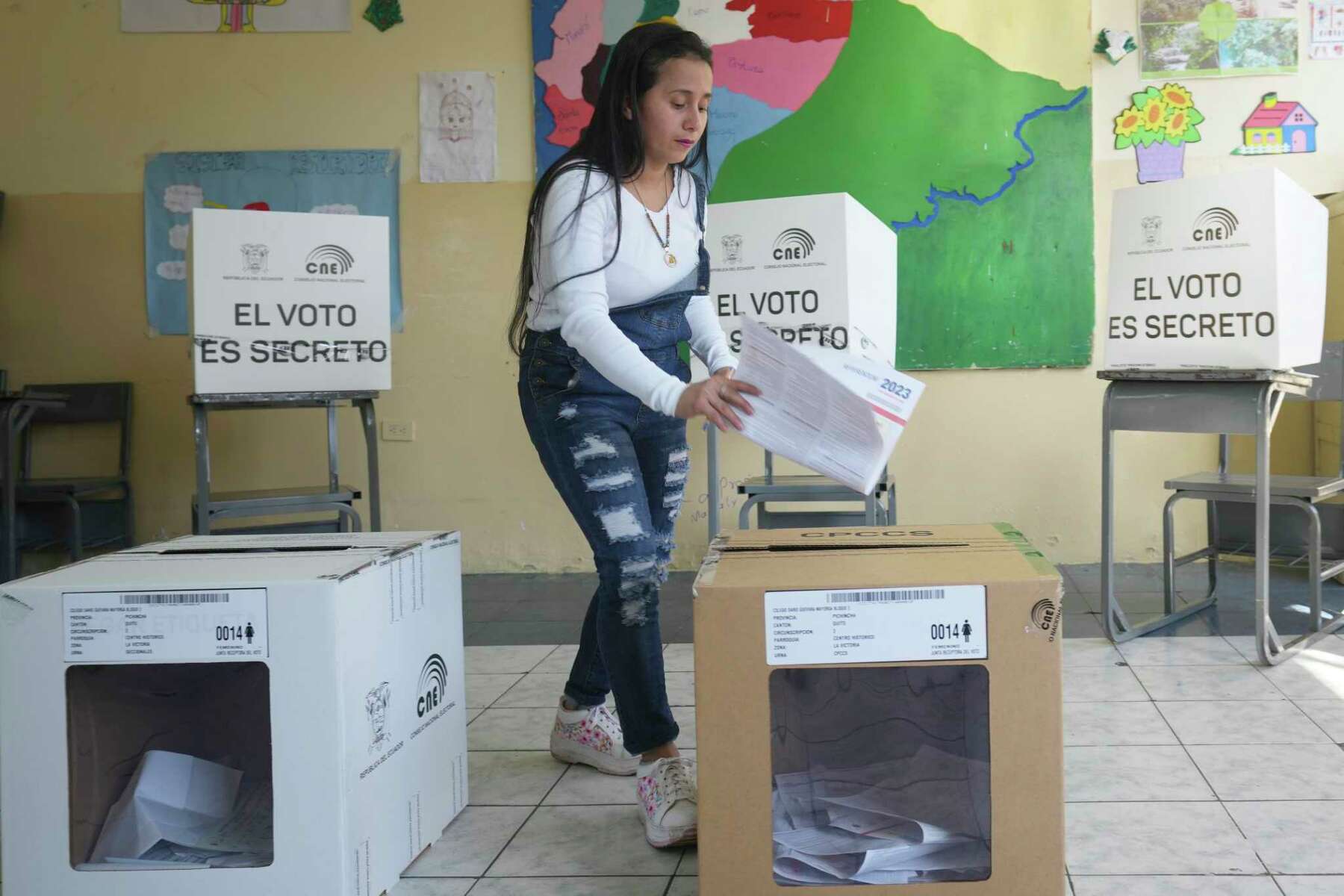
Young man voting in the referendum. File photo.

Orinoco Tribune – News and opinion pieces about Venezuela and beyond
From Venezuela and made by Venezuelan Chavistas

Young man voting in the referendum. File photo.
Without support and with resignations in his cabinet, the president of Ecuador, Guillermo Lasso, ends the week facing a political crisis after the defeat of his referendum at the polls and the loss of key positions in simultaneous municipal elections. This referendum constituted Lasso’s last hope to breathe fresh life into his leadership for the remainder of his term, but the citizens voted “No” to the eight questions proposed on issues such as extradition, reduction of parties and assembly members, and environmental measures, among others.
The allegations of corruption that involve the national administration, the failure of the state to meet the needs of the country’s most vulnerable populations, as well as the recurring lies of President Lasso, contributed to the government’s failure in the referendum and municipal elections, former vice-presidential candidate Carlos Rabascall told Prensa Latina .
The president recognized the setback and called for a national agreement, but so far he has only received refusals from political and social organizations. From the Citizen Revolution Movement (Movimiento Revolución Ciudadana)—main winner of the sectional elections with nine prefectures and 61 mayors—to the right-wing Social Christian Party (PSC), former ally of the president, most sectors of the political landscape rejected the proposal, considering Lasso’s leadership as not credible.
The leader of the Confederation of Indigenous Nationalities of Ecuador (CONAIE), Leonidas Iza, recalled that his organization sat down to talks with the government, and it has broken most of its agreements.
In the municipal elections, voters in Ecuador’s two largest cities, Quito and Guayaquil, voted in candidates aligned with former President Rafael Correa. In Guayaquil, the PSC lost the mayoralty after three decades of control.
In the midst of this scenario, more voices are being raised within the opposition requesting a premature end to Lasso’s mandate through various legal means, ranging from Lasso’s resignation to the use of a mechanism that would dissolve the National Assembly (parliament) and advance presidential elections.
This week, a process to revoke the mandate of the current ruler also came to life after the Electoral Dispute Tribunal (TCE) repealed the decision to file an application aimed at ending the current government.
This means that a new TCE judge must decide on the request presented by the Popular Coordinator for the Revocation Collective, which seeks to collect signatures and remove Lasso from office, a process provided for in the Constitution. Adding to the bad news for the president are the investigations into the alleged network of corruption in public companies in the electricity sector, led by Lasso’ brother-in-law Danilo Carrera, referred to by detractors as “The Great Godfather.”
This Friday, the Prosecutor’s Office raided offices in the Carondelet Palace, headquarters of the presidency, and homes of former officials, while the former servant of the presidency, Mauricio Guim, was arrested on the border with Colombia.
Meanwhile, Lasso decided to reform his cabinet and, on Thursday, installed four new ministers and four governors after the occupants of those positions resigned, including the head of government, Francisco Jiménez, who has been replaced by Henry Cucualón.
Although the definitive results of the referendum and the sectional elections have not been proclaimed by the electoral authorities, the victory of “No” in the referendum is irreversible, despite allegations of fraud.
The National Assembly, various civil and political organizations, and vote observers spoke about the statement by the vice president of the National Electoral Council, Enrique Pita, regarding the discovery of a supposed parallel computer center in the province of Guayas.
It is unacceptable to try to affect the trust of voters by hindering, without any sense, the electoral process, the Assembly said in a statement, in which it warned that it will be vigilant so that popular and civic expression is not violated or ignored.
(Prensa Latina) by Elsy Fors Garzon with Orinoco Tribune content.